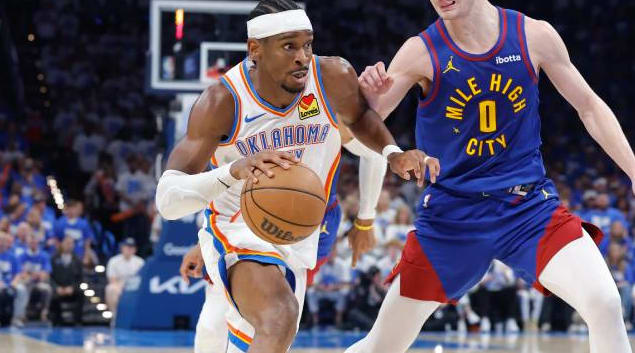I'm not a big offseason football person. I'm fully invested in NBA right now, but what with the NFL combine and upcoming draft, there is a lot of talk on my Twitter timeline about evaluating NFL prospects. There are decidedly different strategies people employ to do so. Some watch game film and evaluate based on what they see; some look at physical and game statistics and run comparison analyses with existing NFL players; and some utilize a combination of approaches. These guys are busy right now, all of them. I now know more about college NFL hopefuls (hand size matters!) than I do about most of my own students!
One conversation I was recently following on Twitter involved whether a player's character impacted his fantasy value. One position was "it definitely does". The other was "show me how character predicts fantasy value". I had to jump in on the "show me" side. I am completely open to the idea that character impacts fantasy value. After all, I'm for using any information I can to get an edge on my opponents. So show me the data. A correlation requires that one variable predictably impact the other. So, measure character, in terms of arrests, suspensions, fines, whatever you want, but measure it for everyone, then plot it against their fantasy points.
The scientist in me is inherently drawn to stats-based analysis of fantasy sports. Data is reliable, unbiased, without narrative. As a fan, I love watching sports, I appreciate heart, can see a baller effort winning a game, and respect great decision making in the heat of the moment. That stuff is why we all love sports. But that stuff doesn't help us predict fantasy value. Data does. (This is not to say that data is infallible. Unless you've been there too many times before (I have), you had plenty of data to indicate that Brandon Jennings would produce a reasonably good to excellent line Saturday night versus the Mavs. Perhaps more sad is the fact that I avoided all of Jennings and still barely cashed in half my games).
A couple of weeks ago, I wrote about how pace impacts fantasy value according to position. A team's pace of play was positively correlated with fantasy points scored only for PG and PF. There was no correlation for the other positions. This provides some useful information to refine our player predictions, or to help us choose between two players (or more specifically, warns us against using pace to decide between two similar C or SF). Most often, when I hear a pace based argument being used in a DFS advice situation, it's to warn you against using a high pace team's player when playing against a low pace team. The logical argument is that the low pace team will slow the game enough to impact the high pace players possessions and therefore scoring opportunities. Makes total sense. But is it true?
In the interest of not just blindly believing things that seem fair or logical, I looked to the data. First, I picked out games where the eight highest pace teams played either each other or one of the eight lowest pace teams. My reasoning: if pace impacted anything, we would see it by analyzing the biggest discrepancies. The top pace teams: 76ers, Nuggets, Lakers, Timberwolves, Warriors, Suns, Rockets, and TrailBlazers. The bottom pace teams: Grizzlies, Knicks, Bulls, Jazz, Nets, Bucks, Heat, and Pelicans. Next, I simply compared the total points scored in those two categories of games (high vs high or high vs low pace) in 2014. For every team, there was a significant or nearly significant reduction in a game's score when playing a low pace team vs playing another high pace team.
Average Score vs High Pace Teams | Average Score vs Low Pace Teams | |
76ers | 214.5 | 198.8 |
Nuggets | 224 | 209 |
Lakers | 226.8 | 198 |
Timberwolves | 215.8 | 194.9 |
Warriors | 217.7 | 197 |
Suns | 225.6 | 202.6 |
Rockets | 220.3 | 195.7 |
TrailBlazers | 213 | 186.3 |
So far so good. When a low pace team is involved, there are fewer possessions so the average game score goes down. Now we learned previously that PG and PF fantasy scoring is most strongly correlated to pace, so it makes sense to ask what playing a low pace team does to the fantasy value at these positions. I compared the fantasy points per game (FPTs) vs high pace opponents to FPTs vs low pace opponents for Michael Carter-Williams, Ty Lawson, Kendall Marshall, Ricky Rubio, Steph Curry, Goran Dragic, Jeremy Lin, Damian Lilliard, Thad Young, Kenneth Faried, Pau Gasol, Kevin Love, David Lee, Markieff Morris, Terrence Jones, and LaMarcus Aldridge. I only used games in which the player got at least 20 minutes and did not use any substitute players when there were missed games due to injury. The point is to compare a players value vs different opponents.

As shown in the graphs above, there is no real meaningful or statistically significant difference in average fantasy production when playing vs high or vs low pace teams. The lone exception is Markieff Morris, who showed a significant decline in fantasy points in low pace games. However, the volatility and unpredictability of the Suns frontcourt suggests that other factors may be playing a role there. Dragic shows a trend toward fewer FPTs in low pace matchups, but it is not statistically significantly less than his high pace matchup totals.
Contrary to popular belief then, there is no reason to avoid a PG or PF from a high pace team in a matchup with a low pace team. I must admit, when I saw the significant score reductions in low pace games, I thought that fantasy production for the pace dependent players would follow suit. These results surprised me and that's why I do these kinds of studies. Just because people say and generally believe something it doesn't make it true.
A couple things are worth mentioning. One is that the trend doesn't just apply to stud players like Love, Aldridge, Gasol, or Curry. Regardless of the player's average fantasy scoring (>40, 30-40, or Tim Duncan's high/low splits and he too showed no statistically significant difference ( 38.4 vs high, 36.5 vs low). The Spurs are ranked 15th in pace, right in the middle. Last, it may be the case that the fantasy production of SG, SF, and C really declines in low pace matchups. If you're interested, let me know on Twitter and I can analyze those positions for a supplemental post later this week.
Thanks as always for reading and have a great DFS week!
























